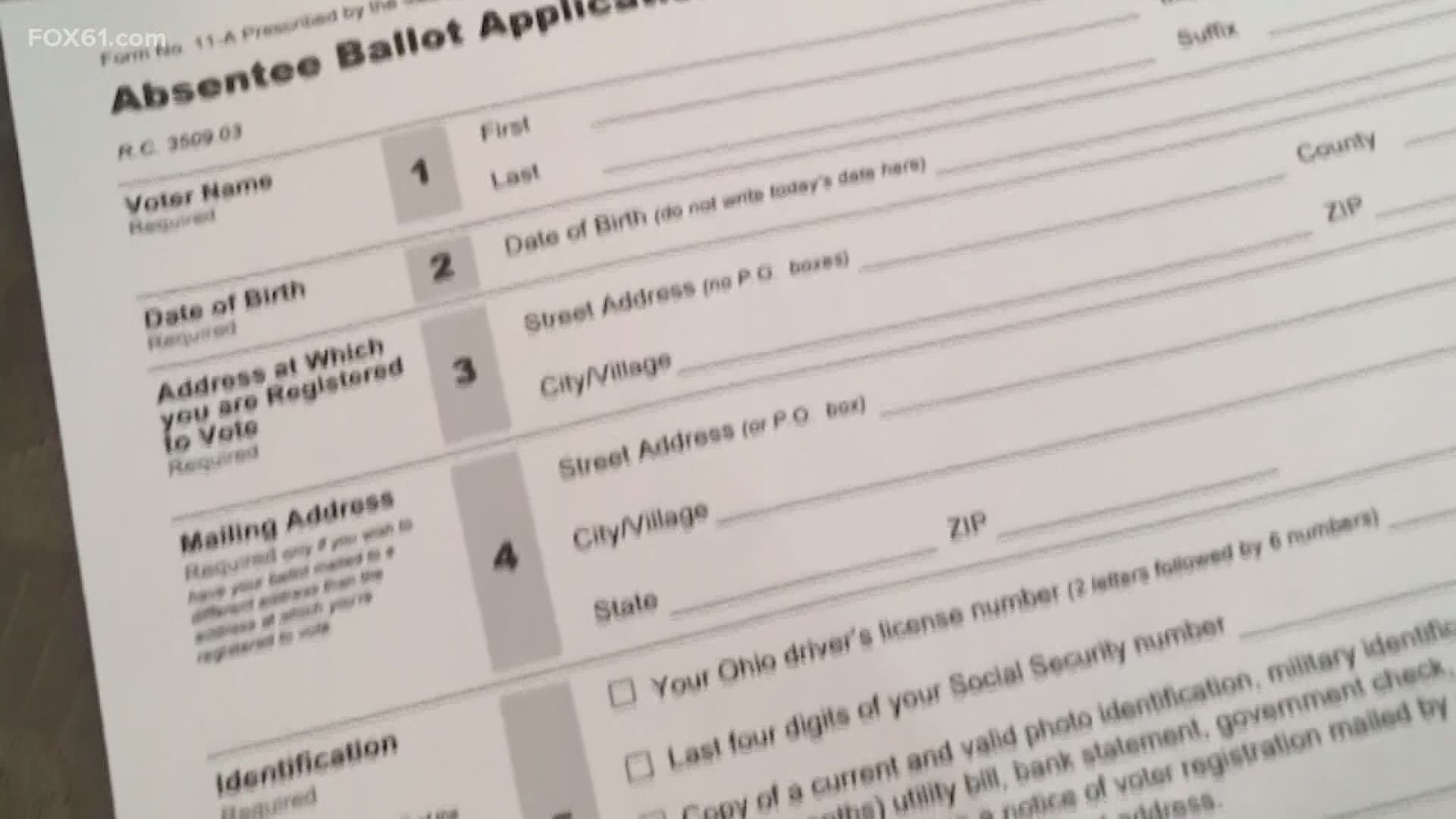CONNECTICUT, USA — The CT Secretary of the State Denise Merrill announced on Wednesday, she will again propose an amendment to the state's constitution that would allow absentee voting without an excuse.
There are currently 44 states that allow voters to vote before Election Day either through No-Excuse Absentee Balloting or in-person Early Voting. Some states even offer both options.
Connecticut, along with South Carolina, New Hampshire, Mississippi, Kentucky, and Missouri requires in-person voting on Election Day unless the voter has a statutorily defined excuse.
“As our local election officials are working hard to complete the counting of an historic number of absentee ballots, one result is absolutely clear – the voters of Connecticut want to be able to vote conveniently by absentee ballot without an excuse,” said Secretary Merrill. “Connecticut voters have spoken and they want options that make voting more convenient for them, just like voters across the country have. The availability of absentee ballots allowed more than 650,000 people to safely and conveniently cast their ballots, and helped to drive what will ultimately be among the highest turnout elections in Connecticut history. This election proved that, even under the most difficult circumstances imaginable, allowing Connecticut voters to choose to vote by absentee ballot can be a success, and voters are telling us that they want that option. I will be fighting to ensure that they have it.”
There is already an amendment to allow early voting that passed the legislature in 2019. Since it did not pass with three-quarters majority in each chamber, it must go back to the legislature after the next legislature is seated. If it passes again, it would be on the ballot for voters in 2022.
Merrill explains the amendment to allow No-Excuse Absentee Balloting would start at the beginning of the legislative process. The Secretary of the State outlined two scenarios of how the amendment could be passed. First: it would have to pass through each chamber passing with a three-quarters majority, then it would go to voters in 2022. Second: If the amendment passes each chamber with a simple majority it would go back to the legislature in 2023 and it passed each chamber again, voters would decide in a referendum on the ballot in 2024.

